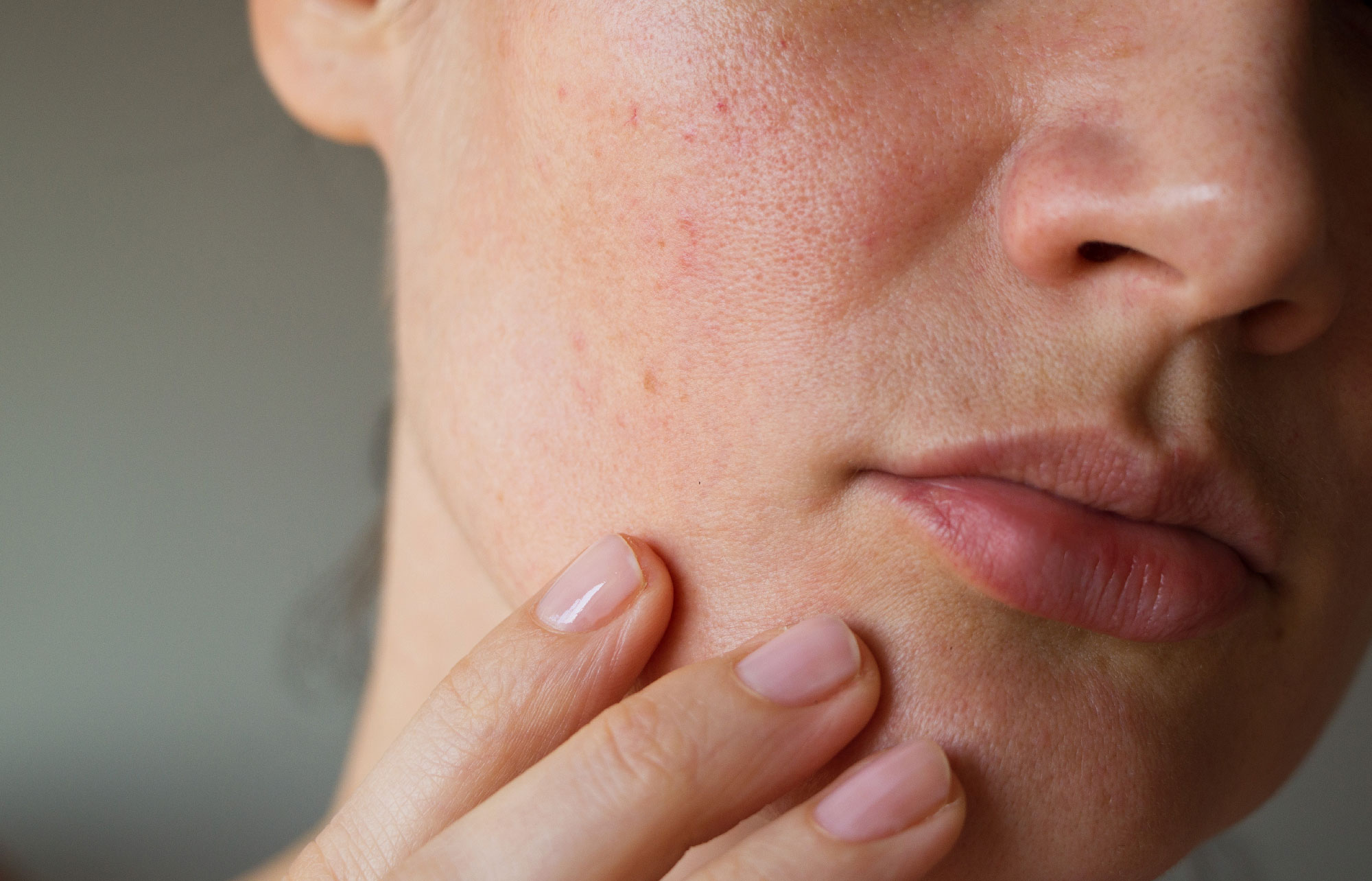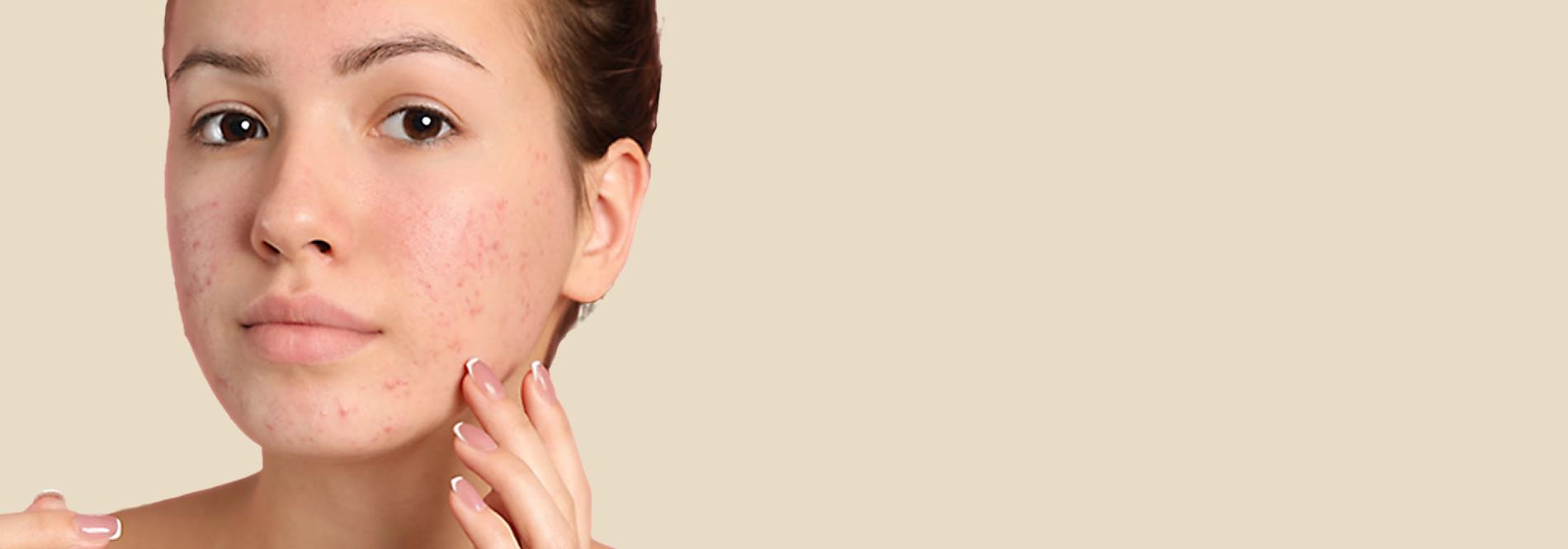Acne-Prone Skin
Keep your complexion in the clear. Expert tips for managing acne treatment & prevention.
Do You Have Acne-Prone Skin?
Acne is the most common skin condition in the United States, affecting nearly everyone at some point in life. While most people have acne as teenagers or young adults, acne can occur at any age. Effective treatments are available, but acne can be persistent. Early treatment and maintaining a good skin care routine can help avoid scarring and help manage acne.

What Causes Acne?
The pores in our skin connect to oil glands under the skin. These glands make an oil called sebum. The pores connect to the glands by a canal called a follicle. Inside the follicles, a thin hair grows, and oil carries dead skin cells to the surface of the skin where the body sheds the cells. Sometimes, the hair, sebum and skin cells clump together to form a plug. Bacteria that live on our skin, p acnes, can also get inside the clogged pore causing redness and swelling. If the inflammation goes deep into the skin, an acne cyst or nodule can form.
Acne typically appears on the face, forehead, chest, upper back and shoulders because these areas have the most oil (sebaceous) glands.
Breakout Symptoms
Acne signs and symptoms can vary depending on the severity of your condition.
Blackheads (open plugged pores)
Whiteheads (closed plugged pores)
Papules (small red bumps)
Pustules (aka pimples)
Cysts (painful, pus-filled lumps beneath the surface of the skin)
Nodules (large, solid, painful lumps beneath the surface of the skin)
Expert Tips for Managing Breakouts:
Wash Twice a Day and After Sweating.
Perspiration, especially when wearing a hat or helmet, can make acne worse, so wash your skin as soon as possible after sweating.
Use Your Fingertips to Apply a Gentle, Non-Abrasive Cleanser.
Using a washcloth, mesh sponge or anything else can irritate the skin.
Be Gentle with Your Skin.
Use gentle products, such as those that are alcohol-free. Do not use products that irritate your skin, which may include astringents, toners and exfoliants. Dry, red skin makes acne appear worse.
Scrubbing Your Skin Can Make Acne Worse.
Avoid the temptation to scrub your skin.
Rinse with Lukewarm Water.
Shampoo Regularly.
If you have oily hair, shampoo daily.
Let Your Skin Heal Naturally.
If you pick, pop or squeeze your acne, your skin will take longer to clear, and you increase the risk of getting acne scars.
Keep Your Hands Off Your Face.
Touching your skin throughout the day can cause flare-ups.
Stay Out of the Sun and Tanning Beds.
Tanning damages your skin. In addition, some acne medications make the skin very sensitive to ultraviolet (UV) light, which you get from both the sun and indoor tanning devices.
Using tanning beds increases your risk for melanoma, the deadliest form of skin cancer, by 75 percent.
Consult a Dermatologist If:
Your acne is worsening.
Your acne makes you shy or embarrassed.
The products you've tried have not worked.
Your acne is leaving scars or darkening your skin.
Breakout Treatment and Prevention
The good news is today, virtually all acne can be cleared. If you’re not seeing results on your own, consult your dermatologist. There are lots of effective acne treatments, but not every acne treatment works for everyone who has acne. Some help kill the bacteria. Others work on reducing the oil. The key is to be patient. At-home treatments may take 4-8 weeks to see improvement and once the acne clears, it’s important to continue to treat the skin to prevent future breakouts.
